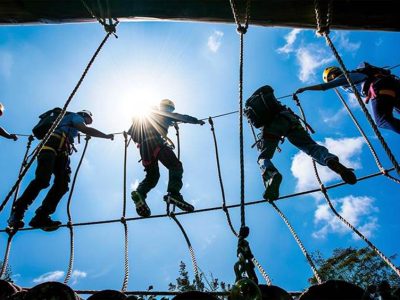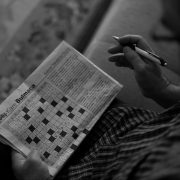Crossword puzzles reach people of all ages, bringing together children and seniors through puzzles suited for every skill level. The wide appeal comes from how each puzzle gives the right level of challenge that matches different stages of learning and thinking ability. Few hobbies maintain relevance across such broad demographic spans as crosswords achieve naturally. Puzzle sources מורדו תשבצים diverse options suitable for different age groups, ensuring everyone finds appropriate challenge levels matching their capabilities and interests.
Universal skill levels
Entry barriers remain low as basic literacy provides a sufficient foundation for beginning crossword solving, unlike hobbies that need costly tools, special lessons, or strong fitness. Crosswords only ask for language understanding that every educated person already has. This simple nature opens the door for all readers. It makesפתרון תשבצים easy for anyone in any place or situation. People can join without wealth, training, or movement limits. This gives the activity a truly shared and open appeal for everyone.
- Puzzles for children promote foundational skills without frustrating youngsters.
- Teen puzzles integrate contemporary culture references and are moderately difficult, making them an ideal bridge between children’s and adult puzzles.
- Adult puzzles feature sophisticated wordplay and broader knowledge requirements suitable for fully developed vocabularies and accumulated life experiences
- Senior puzzles provide cognitive stimulation at an appropriate difficulty, maintaining mental engagement without requiring rapid processing that ageing might slow
- Adaptive difficulty allows individuals starting at any age to find entry points, then progress through skill levels at personal paces without rigid age-grade restrictions
These graduated options ensure that crosswords remain relevant across entire lifespans as solvers advance through difficulty levels matching their developing or maintained cognitive capabilities.
Cognitive benefits span
As children develop language skills through crosswords, seniors maintain cognitive function through active engagement. Young people building vocabulary through puzzle exposure gain educational benefits that complement formal schooling. Adults maintaining mental sharpness through regular solving prevent cognitive decline associated with mental inactivity. Seniors specifically benefit from crossword practice that research suggests may delay dementia onset through sustained neural engagement.
- Vocabulary development in children occurs naturally through exposure to new words within contextual clue frameworks that teach meaning alongside spelling
- Working memory maintenance in adults happens through active information manipulation required when tracking multiple intersecting answers simultaneously
- Processing speed preservation in seniors results from regular timed solving practice that maintains cognitive quickness despite natural ageing processes
- Problem-solving skill enhancement across all ages develops through systematic approaches to clue interpretation and answer derivation that transfer to other domains
- Attention span strengthening benefits all age groups through focused engagement required for puzzle completion without distraction from other stimuli
These cross-generational cognitive advantages make crosswords valuable mental health tools throughout entire lifespans rather than being developmentally limited to specific age ranges. Crossword puzzles appeal across generations through universal skill levels, offering appropriate challenges for all ages, a timeless entertainment format maintaining consistency across decades, cognitive benefits spanning from childhood development through senior mental maintenance, shared family activity potential, creating collaborative bonding opportunities, and cultural knowledge transfer preserving continuity while updating older generations. These multigenerational appeal factors make crosswords rare activities that entire families can enjoy together with genuine engagement and benefit for participants regardless of age differences or ability variations.












Comments